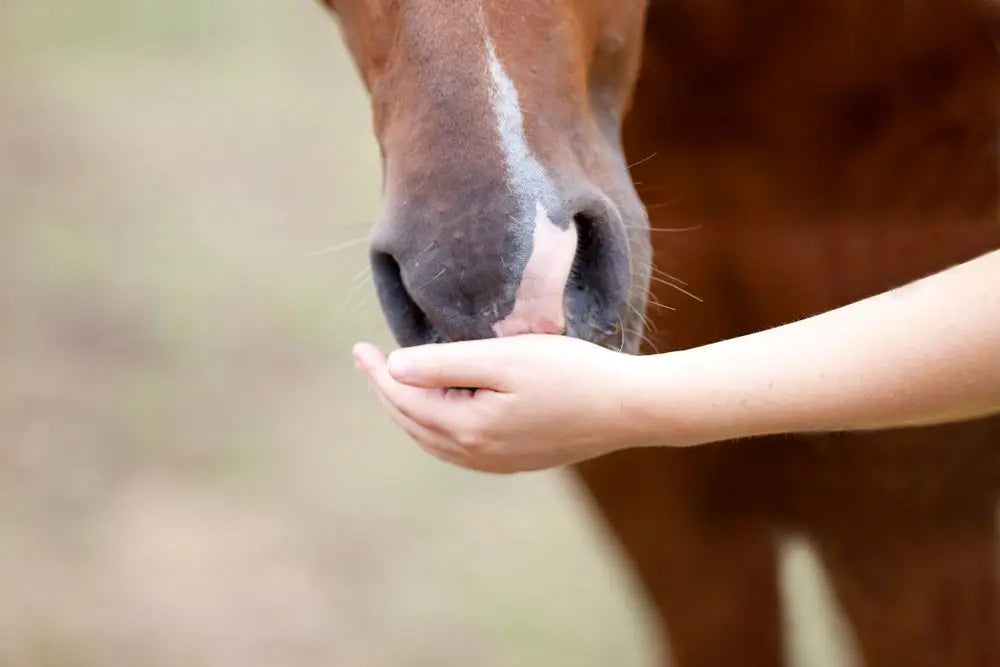From £6.99

Horse Nutrition & Care - Gastric Ulcers
Symptoms of Gastric Ulcers
-
Poor appetite or change in eating behaviour
-
Weight loss or failure to thrive
-
Irritability and general changes in temperament
-
Reduced performance
-
Abdominal discomfort to girthing or grooming
-
Recurrent mild colic
Nutritional Management Tips
- Allow your horse to have access to adlib forage. Never feed less than 1.5% of the horses bodyweight in forage
- Restrict the cereal and starch intake for your horse
- If your horse requires extra energy/calories, consider feeding a high oil supplement to increase the calories whilst minimising starch intake
- Consider feeding an alfalfa chaff. Alfalfa is high in calcium which has a buggering effect on the stomach
- Feed a Stubbs scoop of chaff within 30 minutes of exercise
- Provide constant access to water
- Look at ways of helping to reduce stress levels
- Consider feeding an antiacid and or buffering gastric supplement
Products to feed that are Suitable for horses with
Gastric Ulcers
Saracen RE-LEVE®-MIX is a cereal-free, low starch feed specifically formulated to replace all cereal-based hard feed for horses in work that react adversely to high starch feeds or are prone to Equine Gastric Ulcer Syndrome.
Saracen RE-LEVE®-CUBES are a highly versatile, low starch, low sugar cube that have been formulated specifically to help support a healthy digestive tract and maintain normal muscle function in all horses. RE-LEVE®-CUBES are formulated on highly digestible “Super Fibres” and oil as alternative energy sources making them ideal for horses prone to Equine Gastric Ulcers.


